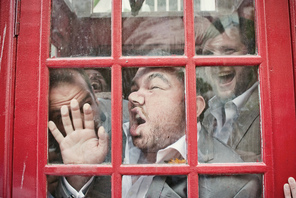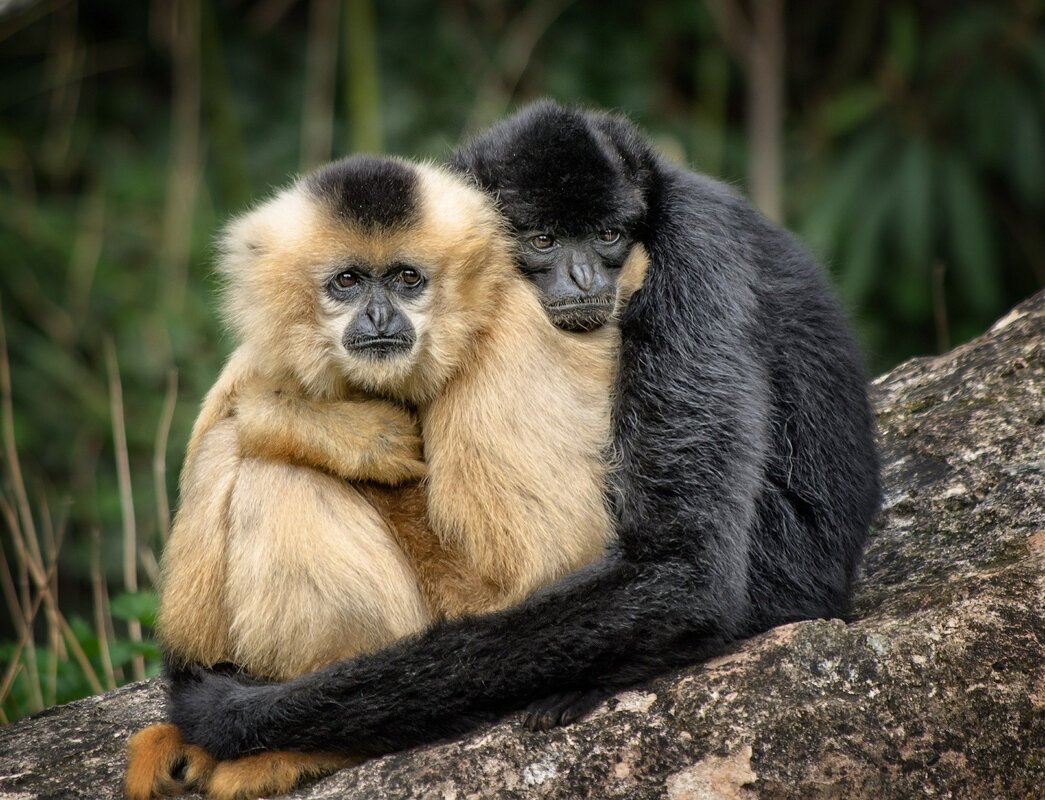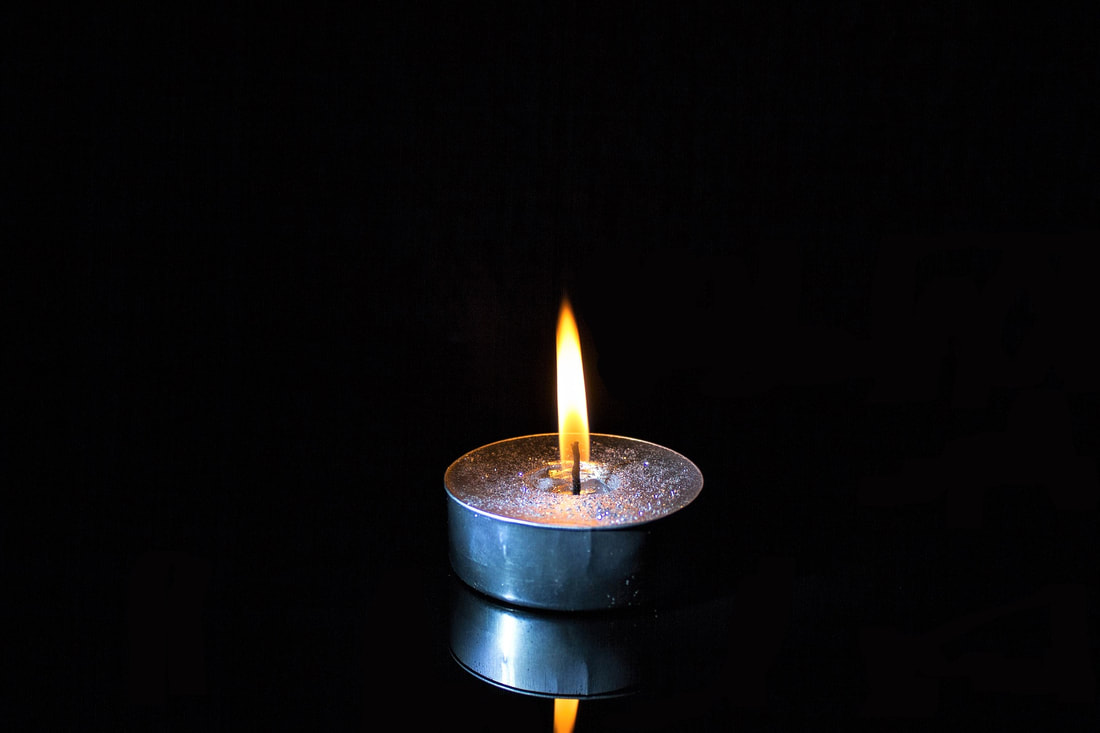|
During our weekly Zoom call my dear mother said she read my post about our broken patio umbrella, and offered to buy me a new one. I could’ve explained to her that the warranty process is important, because I had spent $6 on the policy for the $49 umbrella, so goshdarnit, the warranty people were obligated to fix this problem. Her argument was that her girl just wants to sit outside comfortably for the last few weeks of her life (so buy another gd umbrella already), while my argument was that now is still a fine time to operate on principle. Principles, mother! But instead of carefully explaining my rigid logic in the face of her kind offer, I merely winced, shook my head, and changed the subject, in a superb display of 40-yo teenager.
Apparently, even after all this, I’m still learning how to receive, too. Meanwhile, John became a different sort of mama bear when he finally got on the phone with the warranty people and roared about how difficult they were making this process. I was shamelessly grateful for the privilege of having a straight white dissatisfied male husband, because I knew if even he couldn't get the attention of the Supervisor, no soul on this Earth ever would, and I could finally surrender to the disappointment of having a $6 warranty worth absolutely nothing. My takeaway from this week? There are such diverse manifestations of true love. *** Speaking of receiving, other noteworthy recent experiences include letting one friend give me a head massage, letting another give me a foot massage, and letting another wipe my runny nose and hold me as I mini-wept. All they required from me in each case was saying yes, yes, okay, yes. I accept. *** With only two weeks of food, water, and appointments left, it’s hitting me that I don’t have much time. I’m quickly approaching the point where I need to create an auto reply on my email and put my inner people pleaser to rest. “But what if people take my non response to their messages personally? What if they think it means I don't care about them? What if they--gasp--decide they don’t actually like me after all?” The opportunities for working with one’s childhood stuff never ever end. *** Some numbers: In the past few years, my favorite method for dealing with my free-range social anxiety at any given time is to delete 10-20% of my Facebook friends. I typically choose those who I don't actually know or haven’t heard from in a while. Unfriend, unfriend, unfriend. It’s a poor strategy though because unless someone is unapologetically racist or a vitriolic anti masker (unearthed courtesy of 2020), I usually end up regretting it. Like all good addictions/compulsions, it’s a control strategy with diminishing returns. My last purge-trance included over 200 mostly innocent souls and felt cathartic at the time, but was ultimately guilt-inducing. Plus, I’m pretty sure I now only have like 27 friends left, which is kind of embarrassing. And therefore increases my social anxiety. What’s even more regrettable is that roughly half of my remaining friends are psychotherapists, which means I’m about to receive a bunch of PMs expressing concern. We then come full circle to the question of how I respond to more messages than I can handle. So it’s official, the universe does have a sense of humor after all. *** The Serenity Prayer invites us to accept the things we cannot change, find the courage to change the things we can, and express the wisdom to know the difference. Here’s some of the things I cannot change: the past. Acquiring a disease for which there is no viable treatment. The momentum of my karma until this moment. The fact that Marjorie Taylor Greene walks this Earth the same time as I, and made it to Congress. Other people’s thoughts, feelings, and actions, including whether they trust I value them even if I don’t always acknowledge their kind messages. Here’s what I can change: My responses to everything I cannot change. How much water I drink and slow breaths I take. Whether or not I choose to ask for help, or receive it when offered to me. How I redirect my mind when I want to catastrophize the state of the world, or my cat’s health, or running out of my favorite flavor of Coconut Bliss. Whether I feed my cynicism or feed my creativity. The conception of the God I pray to. *** My gratitude list for today: Portable fans on a hot day, and the electricity to run them. A 12-yo nephew who gives me hope for the future of humanity. My kind caregivers. My mother who taught me how to love houseplants and gift-giving, and my father who gave me good hand-eye coordination, a tender heart, and an ability to find religion in nature. Having clean water and sheets. The potential of fungi restoring this Earth someday. Monkeys who hug, and photographers who capture it. *** *All individuals referenced in this post approve of this message. Photo of monkey hug by rabe dirk wennigsen, pixabay
0 Comments
First published on Facebook, September 4.2021 *** My calendar for the next month has filled up quickly. Nearly every day is already spoken for with friends visiting, zoom chats with family, nurse appointments, hair washes from my CNA, massages with the hospice volunteer, or the occasional days I’ve blocked out for John alone. And then I scroll down to October 3rd, and suddenly there’s a bunch of white space. No wonder i have that anxious, excitable feeling like I’ve been strapped into a rollercoaster and it’s starting to click up the tracks. Meanwhile, I’ve been engaging in a power trip with the customer service reps who should be helping honor my warranty for a broken patio umbrella. Before any of you kindly suggest that I should no longer have to deal with such mundane crap, please know 1) you’re likely right, and 2) I’m still not ready to fully surrender this hokey pokey between Earth and spirit. The human experience these days is filled with bureaucratic annoyance and I only have about 29 days or so left to enjoy it. There’s only so much relaxing and love-and-joy accepting I can metabolize each day, and getting a wee salty with email reps seems to be a fine way to use up nervous energy. In other news, a friend wrote last week to say what struck her about my October plan is that it sounds like I have no fear of death. Since then I’ve wondered if this is true,. It feels true, but I also know the forces of repression, bypassing, and dissociation are strong and sneaky, and I’m just as susceptible as any other Jane.. Might my cranky exchange with the umbrella warranty people be a sideways expression of terror? Or maybe it’s grief talking? Or would all reasonable people get upset when corresponding with an insurance provider who appears incapable of opening an attachment!? I think it’s understandable to be afraid of death, and skeptical of those who say they aren’t. Fear of death is normal. Who wouldn’t be afraid of leaving the light of the known world for the great dark mystery? On this side of the veil all we “see” of death while still living---if we physically see it at all in this death-hushed culture---is a dead body. There’s no animating force left. Someone is there, and then they’re not. You used to have conversations, and now you can’t.. And if you try to keep having conversations with the deceased, and feel you actually are getting answers, you best be careful who you confess it to; there’s still judgment aplenty out there for cross-corporeal communication. In any case I’ve noticed most people who claim they don’t fear death are still very much alive. You Scorpios out there---I see you---are known for waxing romantic about the beauty of death, but I’ve noticed few have jumped on my suggestions to honor that attraction by volunteering for hospice. Why is that? I’m not here to start astro-rivalries though, many, many people speak with bravado about death while still holding her at a safe distance. Yet there's a subset of people who genuinely have little fear of the transition---and indeed, call it a transition instead of merely an ending--- because they’ve had an exhilarating near-death experience or they’ve had undeniable contact with those who’ve passed. In the majority of cases these experiences simply can’t be written off as wishful thinking---they are often life changing. And those of us who prefer the easier, softer way, may have ingested enough entheogens (or other psychedelics) to claim embodied knowledge that consciousness itself cannot be destroyed. (My current best understanding is that the aperture surrounding it simply changes based on conditions of “light.”) If you try to argue with those of us who’ve witnessed as much, you won’t get far. It’s like we’ve had our own religious conversion, and materialist logic is a flimsy adversary to what we know in our bones. But here’s the thing. Despite my trust that consciousness will survive the death of my body, it’s not as if I know where I’m going in the white space of my calendar. There’s no Fodor’s Travel Guide to the other side, and the glut of pastel-covered books in the spirituality/metaphysics sections, while sometimes compelling, are heavy in anecdote by necessity and often conflict wildly in message. Perhaps the other side of the veil is meant to be a mystery, it’s part of the design. If we could define and measure everything about Source /God/dess/HP/The Universe, I’m thinking it wouldn’t actually be very divine. So I want permission to fear death. I want permission to feel everything and anything at the end of my life, without trying to hold myself to inhuman expectations. Grief, joy, heartbreak, tenderness, rage, lust, loneliness, despair, confusion, contentment.. The whole human shebang. Artists want access to the full color palette to express the nuance of their visions. Shouldn’t the dying/living be given the same freedom and dignity in their emotional lives? God save me from having to be “positive” all the time, because doing so only expresses terror and contempt for “negativity.” And it’s hard to be around someone unfailingly chipper. Like those who claim they never get annoyed with customer service reps. It’s suspicious. Even if I know the roller coaster is safe, my stomach is still gonna drop during the fall. My loved ones can walk me straight to the edge of my calendar, and even if I trust there’s loved ones waiting on the other side of the blank space to catch me, i need to be willing to leap from one grasp to another. There’ll be a moment suspended in air, right? How could there not be? Sarah, my beloved nurse friend who’s coming to stay with us in October, tells me she’s never once seen a hospice patient dying who didn’t have a smile on their face or a profound air of peace surrounding them. Maybe it’s even easier than I think. In either case, I’m sure the next few weeks will uncover much more. I’m trying to remember Ii have permission to feel everything. Everything! Until I’m no longer in human form, I want to welcome the full human experience, as messy as it can be, sans judgment. Annoyance at Allstate included. Nervous excitement included. Big love, big tears, and hopefully big laughter every day. Thanks so much friends for coming alongside for the ride---you all have really been showing up, and I’m so grateful for the good company. Photo of woman leaping by Sammie Chaffin via Unsplash First published on Facebook, August 20.2021
John and I have made efforts to share the news personally with as many friends and family as possible, so my apologies if you’re first hearing this now and wish it had come to you in a different vehicle. Go figure that I’m tasked with the most courageous conversations of my life when I have the least physical oomph left to muster. Nonetheless I’m now on the river with a quickly growing current, and this impulse to let my extended village swim alongside must be honored. *** It’s now been four years since I could walk without assistance, three years since I could feed myself a sandwich, two years since I could string words together to voice a decipherable sentence, and one year since I could operate the joystick on my wheelchair well enough to gaze out the window when I so choose. I’m sure there’s new lessons I could still harvest from my unique embodiment if I tried, no matter my growing pain and tremors, my drool and sudden spasms, or my increasingly skeletal frame that’s now immune to comfortable arrangement. I could dig deeper and find more joy in the simple routines of the day and in the faces of those I love. I could keep hopping between my favorite islands of pleasure even as the shorelines give more and more to the sea. And yet---mercifully, I believe---I have now reached a point where I know fighting to squeeze more life out of this body is not the most life-affirming option I have. Forcing myself to plod along waiting for “nature” to take its course would not be an act of self-love; it would be self-abandonment based primarily in stubborn fear. It would require treating myself with less regard than I believe our animal companions should be treated. The truth is I have nothing left to prove along lines of resilience; I’ve mustered enough toughness already, and have concluded grit born of necessity simply isn’t as heroic as we Americans like to believe. *** Call it a “geographic cure”---I won’t argue at this point---I’m ready to travel, and have no shame about admitting it. Early this October, I’m planning to hasten my death by going to bed on a Saturday night and initiating a fast from further food and water. I’ll have hospice meds and tricks to help me with any thirst, pain, and anxiety that arises, but as my body grows weaker I’ll experience the natural analgesic (pain-reducing) effects and light euphoria of dehydration. Hospice nurses and doctors generally rate dehydration via this method (VSED: it’s a thing) as an 8 out of 10 on the scale of “good deaths.” I very much want a good death. It feels like a special honor and fortune, especially considering the mass exodus humans seem to be making these days from this planet, often in painful, lonely, or wholly unnecessary (unvaccinated) means. I think what may make for a good death more than anything else is the extraordinary and rare privilege of getting to plan my final bow thoughtfully and carefully, with my favorite people given plenty of notice, and many of them physically at my side. While some say that dying randomly and peacefully in your sleep is the best way to go, I’ve grown to suspect that the experience I’m having, of intentionally reclaiming my autonomy and self determination from a brutal illness, choosing the conditions of my exit, and having conscious amends and goodbyes with loved ones is the most meaningful rite of passage I could have. So please friends, don’t say I lost the battle with ALS. Yes, ALS fights dirty, but it hasn’t broken me. It doesn’t win anything. There’s power in conscious surrender. I choose. I win. *** Here’s what should happen: by day 3 or 4 of my fast I’ll grow weak, and start sleeping for longer periods. Within a couple more days I’ll become unarousable as I slip into a coma. Because I’m still young and have strong organs, I may take longer than the average 9 days to slip out of my body. In the meantime I’ll have my beloved transition team making sure I’m comfortable, holding my hand, whispering sweet nothings in my ear like “it’s okay to go,” and “we’ll be okay,” and “we’ll vote in the midterms” and “we got this Earth thing” and ”fly, dear one. Just fly.” *** Despite my readiness, I’ve realized there’s no way to *not* feel my death is too early in some respects. I know there’s 90 year-olds who feel the same way. Truly, when is it ever time to (seemingly) lose connection with everything and everyone you love in one fell swoop? Who would willingly leave behind organic tater tots, fur babies who purr and chirp like mine do, the genius metaphors spilling daily from an otherworldly spouse, or the chance for another guilty daytime round of the Twilight Saga? But perhaps such attachments are simply a measure of a good life. We all have our versions. I only know I’ve done the work I’ve been called to, learned over time how to treat others and myself with a little more dignity and consideration, and experimented with how to create, boogie, and rest in increasingly adaptive ways. I’m honestly not sure what could be better accomplishments, or make for a more complete life. *** There’s been a couple handfuls of times in which I’ve felt a compelling, twinkling rightness of an impending life transition deep in my gut. I’ve never regretted the ultimate changes resulting from these times, even if the travel got a little rough in the liminal zones. In addition to the occasional weepiness of saying goodbye to who and what I love here, I’ve also felt the stirring, seductive excitement that reliably foreshadows my next creative romp. My ancestors are gathering to welcome and celebrate. There’s a sparkly quality in the air. Before going to bed the other night, John sat down, sighed, turned to me and said, “it’s all gonna be okay huh.” And after pausing for a minute I was able to agree, “yes, I think it is.” *** I was planning on having a juicy ripe nectarine as my last food on that Saturday night, until I remembered October is no longer nectarine season, which means I’ll be forced to settle for my next favorite fruit, tiramisu. Negotiation is the name of the game. *** Speaking of fruit, I have a luscious and growing belly but I’m not sure what or when I’m expecting from it. I learned one way hospice staff gauge the nearness of death in the terminally ill is by measuring the transforming Buddha-ness ratios of one’s belly. I’m sure there’s a scientific explanation having to do with increasing fluid retention or something. Maybe I’m still overly romantic but I’m also wondering if those of us who get to this point are all simply preparing to give birth to what’s next. *** The main risks of sharing such an intimate decision and process on social media---which I’ve decided include being judged by a mixed audience on a judgy platform, and getting inundated with messages I’m unprepared to thoughtfully respond to--are worth the opportunity to destigmatize and un-shame another aspect of (and option in) the dying process. I think it’s good for us all to talk openly about death, and be reminded there are resources for maximizing the ease and sacredness of the passage before the day comes (assuming we’re fortunate enough to have notice). That said, my sharing publicly is not an invitation to approach me with advice, alternative methods, self help projects, miracle cures, or Scripture, but thanks for wanting to help. I don’t need unplanned distance reiki, even though I believe in palliative medicine and generally appreciate good vibes. Instead, I welcome expressions of warmth, understanding, humor (especially from fellow pALS, dark included), poetry, improbable cat videos or groovy song links. I’d especially enjoy voice or video recordings sent over Messenger, and already have a plan to binge my favorites in my final days. In any case I’ll ask everyone who contacts me to please do so without expectation that I’ll respond in some significant way. My time and energy is limited, ultimately just like yours, but relatively, hopefully, much more so than yours. .If I reply to your heartfelt message with nothing more than a thumbs up, take it as a sign that I think you’re fantastic and will do my part to shower you generously with glittery soul pastries from the afterlife. *** I’d like to share more observations as the weeks wind down, as long as I can find the will and inspiration. I hope it’s meaningful for (you) my friends to have a view of my river before your own nears the big sea. It’s certainly nice to be witnessed in my twilight---we should all be so lucky to get to share our last lucid weeks and days crying, listening, and laughing together. Photo by charles Lebegue on Unsplash It strikes me that the holidays are as good a time as ever to talk about grief, and the holidays of 2020? Lordy, pull up a chair.
So many of us are experiencing the existential willies right now for obvious reasons, yet the loss of homes due to the growing climate disaster and loss of lives due to the pandemic mean an unfathomable amount of our literal and figurative neighbors are drowning in overwhelming pain right now. And I’ve learned the best thing we can do for pain is, first and foremost, acknowledge its existence. When going through our own acute pain of losing my health and then losing our home and belongings, hubby and I learned firsthand which responses from others helped, and which responses left us with an even greater loneliness. It’s worth noting that no one fully knows what to do with grief--our own or each others’--unless we’re shown. In the larger cultural pushes toward militant optimism--also known as toxic positivity--we all are encouraged away from acknowledging our wounds. We’re told to just get over it, or look on the bright side; we’re told to use the experience to springboard into a better life, or get busy creating a new reality. This would be great if such advice actually worked, but with complex or early grief, it rarely does. In that spirit, I thought I’d offer some of what I’ve learned both as a therapist and grief survivor about the helpful (and less helpful) things to say to someone who is tossed about by acute loss. First off, please, please say *something*. Even if it’s awkward, bumbling, and brief, your effort will be noted and appreciated. Don’t assume the grieving person knows you care without you saying so, or would be bothered by you acknowledging the loss. When a family member, friend, or coworker has lost something precious (their loved one, their home, their health, their pregnancy) and they know you know, your silence would be deafening. If you don’t know what to say, try this: “I don’t know what to say… But I want to say something.” “I’ve heard. I’m so sorry.” “I can’t imagine what you’re going through, but I’m here if you want to talk.” “I care about you.” Once we open the conversation, we may notice the urge to try and cheer the grieving person up. But if we investigate this impulse, we often find it springs out of our discomfort feeling our own pain. But I promise you, it’s safe to allow ourselves the occasion to feel our own heartbreak; the grieving person is handing you an invitation to not turn away. So before saying the following: “God/ Universe/ Source has a bigger plan,” or “Everything happens for a reason,” or “You can always find another spouse/have another child/rebuild a better home,” we can instead pause and try to empathize for another moment or two or hundred. While these statements of faith may eventually prove true (I think few of us ever fully see the big big picture), and can feel comforting when someone arrives to these conclusions for their life on their own, they rarely comfort when lobbed toward someone freshly devastated. What’s more, they run the risk of dismissing someone’s pain, and may send the message that they should not indulge in so-called “negative” (read: difficult) emotions. Not only are fear, anger, sadness, shock, etc normal responses to loss, they will often hang around longer for anyone who feels it isn’t okay to feel or talk about them. And there is no spiritual wisdom in dismissing heartbreak, believe me. Long story short, we need to first witness, meet, and hold space for each other in our full human emotional messiness. There will be time to harvest any silver linings later; as David Kessler asserts, finding meaning is the sixth stage of grieving--meaning a whole lotta other feelings come first, or at least come alongside. If the ideas in this post are helpful, let me know, and feel free to share. I’d like to write a little series of posts on grief over the next month, getting more in depth about how to greet the grieving, and more on concrete ways to help. This collective storm will be more survivable if we all get darn good at helping each other through it.  Healthy boundaries are flexible and adaptive. Healthy boundaries are flexible and adaptive. What do you picture when you think of the term "healthy boundaries"? If you’re imagining: * a colleague refusing business calls when on vacation * a friend breaking up with an abusive partner * your own careful discernment when sharing personal info in a professional setting *your mate’s insistence on getting to bed by 10pm *visiting family for up to 3 days at a time, and no more, Then, you’re on the right track. Last week, I posted on 5 different life areas in which to consider personal boundaries. Knowing what healthy boundaries are, and knowing how to abide by them for yourself, however, are two very different things. For many with a history of substance abuse, addiction, or repeated compulsive behaviors, boundaries get compromised. This is due to the activity or substance becoming more compelling than healthy self-care and relationships. For those who grew up in situations where their emotional, mental, or physical boundaries were violated (or at least a bit impinged upon) repeatedly, it can be very difficult to know what healthy boundaries are and how to honor them. Note that boundary violations can be quite subtle. Here are some key pointers on how to set healthy boundaries: 1. Know what healthy boundaries look like. One analogy I often use with clients is the image of a strong, upright fence with a working gate that you can open and close at will. It is not a wall (rigid boundaries), or a nonexistent or blown over fence (weak or enmeshed boundaries) that one could just step over easily. It is useful to seek out different sources of information on healthy boundaries, whether it is friends you respect, readings, recovery groups, or your therapist. 2. Identify how it feels to ignore your own boundaries. Anytime we set intentions for our own behavior (examples include: I will have just one drink; I will go to bed on time so I feel rested in the morning; I will not slap my child; I will not have casual sex) and then don’t abide by it, the results generally are not positive. These types of internal boundary crossings can result in self-aggression or hatred, despair, hopelessness, or anger. It’s important to get to know our exact pattern of consequences when we live outside of our values and intentions, so that it becomes easier to course-correct in the future. 3. Identify how it feels to have your boundaries crossed by someone else. Most people get a feeling of anger, fear, revulsion, disgust, or general “sliminess” if they have their boundaries crossed. For many people, these feelings above may be the first clue that they have been violated in some way by another person. By definition, trauma is an extreme form of boundary crossing. Sexual abuse or assaults are traumatizing because one’s physical and emotional boundaries have been so blatantly crossed. Physical and emotional abuse or neglect can also be very damaging boundary crossings. Many people who find themselves abusing substances or engaging in addictive behaviors often have survived significant boundary crossings such as those above. Even if the boundary crossing was not severe or repeated, it can feel quite uncomfortable to have another invade your physical space, attempt to manage or control your feelings, or ask for (or demand) personal information or time you’re not ready to give. 4. Work to recognize your right to set boundaries. For some, the question can arise, “do I even have a right to set a boundary?” Many people fear that setting boundaries in relationship will drive the other person away. And, this fear is warranted—especially if the “other” in the relationship has weak boundaries themselves. However, healthy people will respect boundaries, and chances are, will trust you more for setting them. 5. Identify personal boundaries. How do you like to be touched, and by whom? How do you like to be spoken to? What are your standards for self-care and your own behavior? What are your values, and how are can you live more closely aligned to them? What sorts of behaviors will you accept from others, and what will you not accept? The more we can get to know how we best operate in our lives and relationships, the more easily we can respect our needs. 6. Practice “acting as if” you honor our boundaries. In some 12-step groups, the saying “Fake it ‘Til you Make it” is popular. Sometimes we need to “act as if” we are willing and able to live in a certain way, until we can believe it for ourselves. Don’t think you can confidently turn down a date or a drink? That’s okay—pretend you’re confident, and try it anyway. You may be surprised at the results. 7. Repeat the above, until healthy boundaries become natural. Healthy boundaries are flexible, adaptive, and responsive to the situation at hand. With healthy boundaries, we can trust that our “no” means something, which means our “yes” also means something. Others can learn to trust us more fully, as well. And remember: our boundaries in various situations may change as we develop emotionally. This growth is good news! I’d love to hear what you find about setting your boundaries. Feel free to contact me with your thoughts, or to set up a free initial phone consult. Warmly, Teri  Ouch! Could that have been avoided with a clearer boundary? Ouch! Could that have been avoided with a clearer boundary? Sure, we know that it's popular these days to have something called "healthy boundaries". If we leave our work at the office, say "no" to offers we don't like, and ask people to step off our toes when they're too close, we may think we've got the whole boundary thing licked. But there’s more to boundaries than we typically tend to think. Fundamentally, boundaries are meant to help us find safety. They delineate where our (mental, emotional, physical) space ends, and where another's may begin. When we have healthy boundaries, we take responsibility for our needs, thoughts, and feelings, and we allow others to have their own needs, thoughts, and feelings, without taking responsibility or needing to somehow change them. When we honor our boundaries, we set limits, and take adult responsibility for our experiences. One way to think of boundaries is to recognize how we interact with them in several different categories: 1. Physical: How much space would we like between ourselves and others? What sorts of affection and touch do we want, and not want? How much sleep and self-care time do we need to feel our best? Usually, traumas such as accidents are primarily physical boundary violations. We can feel violated by life itself—as if we have lost trust in the integrity and ongoing well-being of our physical self. Sexual and physical assaults, while of course being physical boundary violations, can also be emotional and energetic boundary violations. 2. Emotional: How would we like to be spoken to? What sorts of feedback feels good to us, and what is unnecessarily hurtful? Can we allow other people to feel sad, angry, hurt, or fearful, without needing to “fix” them in some way? Can we allow ourselves to feel sad, angry, hurt, or fearful, without blaming it on anyone or anything else? Can we choose what we’re ready to share about our inner life with another person, at a pace that honors the safety and trustworthiness of the relationship? 3. Intellectual/mental: Can we respect other people’s viewpoints and ways of seeing the world, even if we strongly disagree? Can we respect that other people want to do things differently, have different preferences, and may understand certain concepts and situations differently than we do? This can be especially challenging in situations involving politics that we feel strongly about it, or if we feel we know "best" about how to do or see something. 4. Spiritual: Can we allow others to have their chosen spiritual life (or lack thereof), without feeling the need to change them, convince them of their wrongness, or force them to see things differently? Do we honor our own need for spiritual engagement or lack thereof, without needing to explain, justify, or rationalize our chosen belief system? Do we respect our need to honor our spiritual values instead of letting them take a backseat to our more everyday concerns? 5. Energetic: What kind of people do we want to be around, and what kind of people are toxic to us—and can we honor the need to chose our relationships carefully? If we can’t choose the relationship, can we arrange ourselves in a way so that we minimize contact with the unhealthy other? What sort of spaces and situations do we repeatedly find ourselves in—are they chaotic, confusing, abusive, and messy, or loving and joyful? The energetic boundary is closely related to physical and emotional boundaries. You may feel violated energetically if, for example, you are visually “sized up” by another person, or you find that someone has looked through your personal belongings or space without permission. Oftentimes, our boundaries change over time, as we develop emotionally. Many people in early recovery from trauma, addiction, or substance abuse find that they need to uncover or develop their personal boundaries, to both protect them from relapse or further traumatization, and to encourage emotional growth. I’ll post on How to Set Healthy Boundaries in the coming weeks. Stay tuned! Warmly, Teri |
Archives
September 2021
Categories
All
|
Photos used under Creative Commons from vemiya, johnhope14, jamieanne, NagzLens, _nur





 RSS Feed
RSS Feed